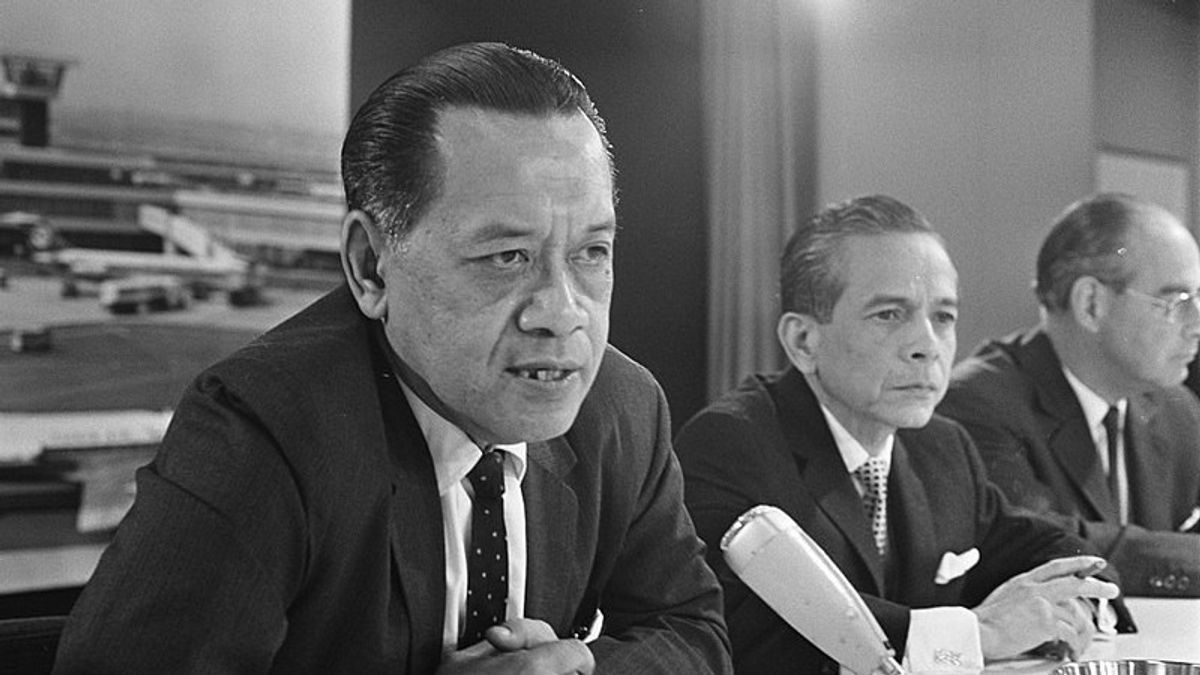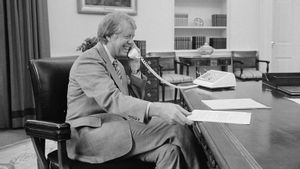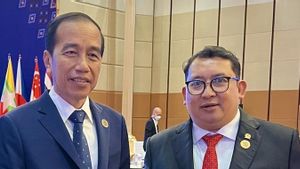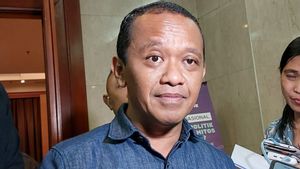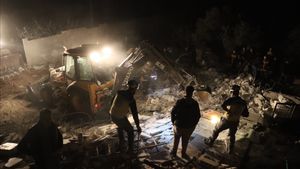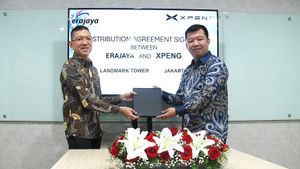JAKARTA - The proclamation of Indonesian independence was greeted with joy. All Indonesian people celebrate it. But not for the Netherlands. The Land of Windmills had other thoughts. The proclamation is actually considered a way to colonize Indonesia for the second time. His troops landed. Jakarta was surrounded. For security reasons, the National Capital was moved from Jakarta to Yogyakarta. Sultan Hamengkubuwono IX became a meritorious person. It provides everything. From operational costs, buildings, to employee salaries.
Breaking free from all forms of colonialism is the dream of all Indonesian people. No one can stand colonialism. Because, the Indonesian people were only used as "cash cows" by the colonizers. He took the wealth of the motherland, while the people only got the dregs.
Since then, everyone has agreed that Indonesia needs independence. Freedom is a fixed price. Either way. That wish was answered when Bung Karno and Bung Hatta proclaimed Indonesia's independence on August 17, 1945. A historic day which was then greeted with joy and joy.
In fact, the Netherlands considers this historic event lonely. The Netherlands actually thinks otherwise. The proclamation of independence is believed to be the way for the Dutch to re-colonize the archipelago. Moreover, Japan has lost its power. The Netherlands also played an act of terror.
The landing of troops with the banner of the Netherland Indies Civil Administration (NICA) to Jakarta was his lesson. The troop dispatch was carried out on a regular basis. The arrival of the NICA troops also accompanied the allied troops, the British. The actions of the Dutch are proof that they have a desire to overthrow and return Indonesia to the status of a colony.
“Provocation by Dutch troops: their landings were relentless under British protection; as well as less assertive statements by the British, showed many Indonesians that the proclamation of Indonesian independence was being challenged and their sharp reaction was being provoked. The Jibakutai (Japanese suicide squad) could no longer be held back. The units are further subdivided into smaller-scale combat groups.”
“Followed by various armed youths, they launched a violent attack on Dutch and British patrols. In some cases, generally when the Barisan Pelopor was involved, the targets of the violent attacks were no longer limited to foreign troops, but extended to Dutch civilian prisoners, including women and children. Simultaneously, all armed Indonesian units stepped up their efforts to seize weapons and power from the Japanese,” said George McTurnan Kahin in the book Nationalism & Indonesian Revolution (2013).
The atmosphere of Jakarta is full of danger. The lives of the nation's leaders are also in danger. They could have been killed by NICA soldiers. As a strategy, NICA also armed former Koninklijk Nederlandsch-Indische Leger (KNIL) soldiers who came out of Japanese detention camps.
Therefore, news of the battle between Indonesian youth and NICA is increasing. Especially news related to the atrocities of NICA. The news came to the surface. Torture and murder are lawful in the eyes of NICA. In fact, NICA not only tried to cripple freedom fighters, but also targeted ordinary people. Not to mention, NICA often confiscates the property of the Indonesian people. From money to food.
The savagery of the NICA soldiers reached the ears of all Indonesian leaders. Soekarno, for example. he did not want to be careless by forcing the center of government or the state capital to remain in Jakarta. Bung Besar understands that the power possessed by Indonesia will not be enough to match NICA. The only reasonable option is to move the National Capital from Jakarta to Yogyakarta. For safety's sake, he thought.

“At the same time, the situation in Jakarta has become so dire that I cannot stay there any longer. Without a strong police force, we cannot compete with NICA. It's not about the life of the leader of the country, but the life of the whole country is in danger. In the evening of January 3, 1946, I told the ministers, guards and loyal assistants: the seat of government must be moved to an area free from Dutch interference so that we can build a republican fortress.”
“Yogyakarta, or as it is popularly known as Yogya, fulfills this need. Yogyakarta is also the center of Java. The decision has been taken. We're moving the capital tomorrow night. None of the brethren may carry possessions, I warned. Neither do I. There is no time to pack household furniture or move possessions. Besides that, my brothers are close to me, so you are always under surveillance,” said Soekarno as written by Cindy Adams in Bung Karno's book: Connecting the Tongue of the Indonesian People (1965).
The King's RoleMoving the National Capital from Jakarta to Yogyakarta requires no small amount of money. Unfortunately, Indonesia at that time did not have a state treasury. Even if the move to the capital city was only motivated by the spirit of not wanting to be colonized again by the Dutch. Moreover, a number of national leaders, such as Soekarno and Sutan Sjahrir, were increasingly threatened with their lives because they were the target of NICA.
The confusion was finally solved. Sri Sultan Hamengkubuwono IX agreed with Bung Karno's idea for Yogyakarta to become the State Capital. The Sultan of Yogyakarta himself acted to welcome the Soekarno-Hatta entourage and the Indonesian Cabinet Ministers at the Tugu Station.
In fact, all kinds of government equipment had been prepared by him. So that Indonesia can still exist as a country. Therefore, since January 4, 1946, the capital city of the republic of Indonesia officially moved from Jakarta to Yogyakarta.

“In January 1946, the capital city of the government of the Republic of Indonesia moved from Jakarta to Yogyakarta. Sultan Hamengkubuwono IX officially welcomed the arrival of Bung Karno and his entourage at Tugu Station. From then on, Yogyakarta immediately became the capital of the revolutionaries who were vigorously fighting for independence.”
"Hamengkubuwono IX as the host, also prepared it wholeheartedly and wholeheartedly. He had to take out the royal treasures stored in chests containing silver and guilders to be used as provisions for government operations, to pay government employees. Not only that, royal buildings are prepared as administrative offices and other purposes," explained SD Darmono in the book Building A Ship While Sailing (2018).
The role of Sultan Hamengkubowono IX when Yogyakarta became the nation's capital was also felt by all government employees and revolutionaries. Hoegeng Imam Santoso, one of them. It so happened that Hoegeng before becoming the National Police Chief had served as a police officer as well as a revolutionary fighter in Yogyakarta, right during the Revolution.
At that time, he often received assignments from the first National Police Chief, General Raden Said Soekanto, to deal with Sultan Hamengkubuwono IX. Meeting after meeting made the two of them close. Sultan Hamengkubuwono IX respected him. Vice versa. Since then Hoegeng – who later became known as the National Police Chief and an honest police officer – knew that Sultan Hamengkubuwono was a friendly and sincere person.
The sincerity was seen when Yogyakarta's condition was not good. The National Capital was being bombarded by NICA at the time of the Second Dutch Military Aggression. Republican fighters automatically did not receive a salary because the nation's leaders had been exiled by the Dutch to the islands of Bangka and Berastagi. This condition prompted Sultan Hamengkubuwono IX to intervene. He often helped the economy of revolutionary fighters like Hoegeng.
“However, there was one thing that was unforgettable during the Second Military Aggression in Yogyakarta for our family. And apparently also for Republican fighters who live in the city of Yogya! It's because I don't receive my salary anymore due to the chaotic situation, especially when high-ranking state officials are being held captive in Pulau Bangsa and Berastagi! For my daily meals I work at Pinocchio Restaurant. And Mery (Hoegeng's wife) has to sell satay and other foods there too. Life is very difficult."
“But one day someone came to deliver money to the house. The amount is also large, 12.50 guilders, because the NICA currency has a high exchange rate. But all the guilders were given in the form of coins! The introduction adds that it is: money from the Sultan," concluded Hoegeng Imam Santoso as written by Abrar Yusra and Ramadhan KH in the book Hoegeng: Ideal Police and Reality (1993).
*Read other information about HISTORY or read other interesting articles from Detha Arya Tifada.
Other MEMORIESThe English, Chinese, Japanese, Arabic, and French versions are automatically generated by the AI. So there may still be inaccuracies in translating, please always see Indonesian as our main language. (system supported by DigitalSiber.id)
